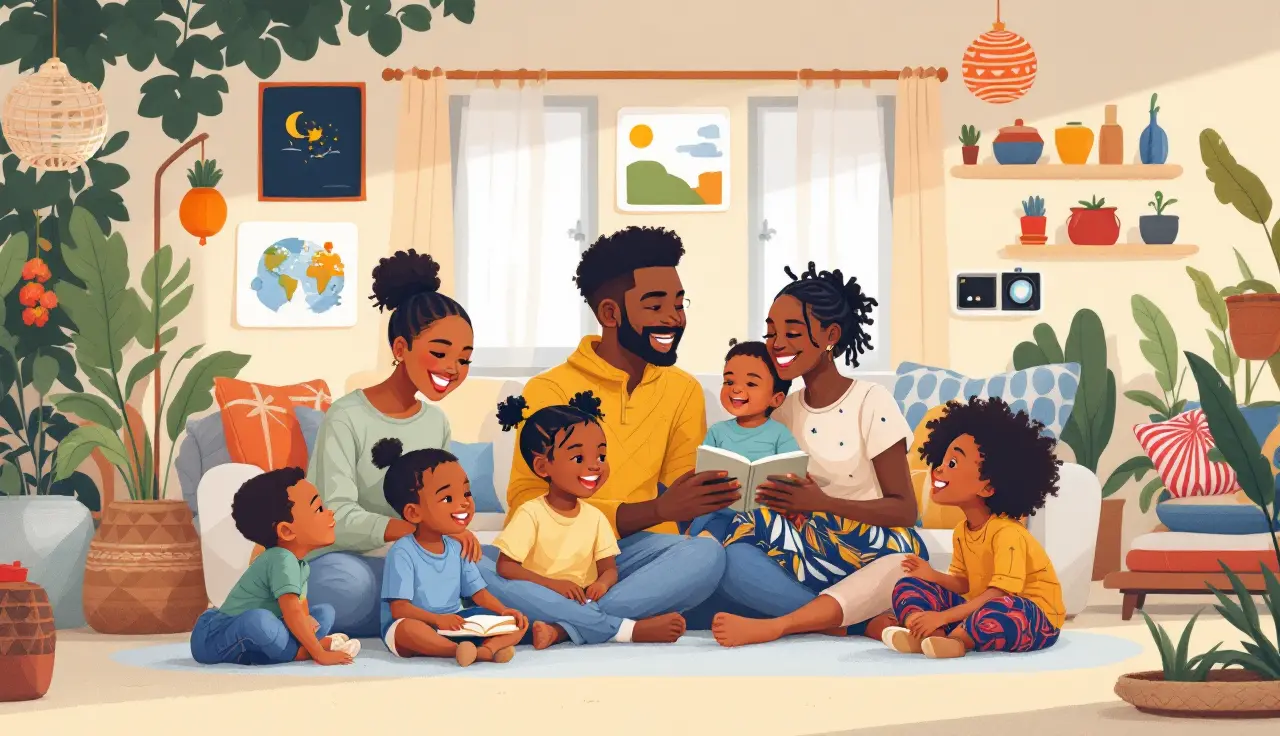By Lionel Kubwimana
••6 min read
Discover ways as the only African language family to connect your kids to their roots. Simple success tips and community outreach for a proud, thriving future.

You moved to a new neighborhood. Your kids are the only ones who speak your African language. Sometimes you feel alone. But you're not giving up on your culture.
Every parent wants their kids to know where they come from. You want them to speak your language and feel proud of their roots. This guide will help you keep your culture alive, even when it feels like you're the only family trying.
When kids know their family's language, they get amazing benefits:
Your efforts today will help your children for their whole lives.
You don't need perfect lessons. Just use your language during regular activities:
Morning routines:
Kitchen time:
Around the house:
The goal isn't perfect grammar. It's making your language feel normal and comfortable. Every word counts.
Find children's books in your language. If you can't find any, tell stories from your childhood. Kids love hearing about when you were young.
Easy story ideas:
Set up weekly calls with grandparents or relatives back home. They can:
These calls keep culture alive and give kids real connections to their roots.
Music makes language learning fun and easy:
Find TV shows or movies in your language. Even cartoons work great. Watch together and talk about what happens.
Benefits of watching together:
Your holidays matter, even if neighbors don't celebrate them. Make them special for your family:
Simple celebration ideas:
Consider inviting neighbors to your celebrations. Many people love learning about other cultures. This helps your kids see their heritage as something valuable to share.
Make learning about your culture exciting:
Project ideas:
Let kids express their culture through art:
These activities help kids see their culture as beautiful and interesting.
You're not the only African family feeling this way. Look for others:
Where to search:
If you can't find others, start something yourself:
Schools often welcome cultural diversity. Here's how to get involved:
Easy school activities:
Talk to your child's teacher about:
This helps your child feel seen and valued at school.
This happens to many families. Here's what helps:
Don't force it – Make it fun instead of required Be patient – Learning takes time Show benefits – Point out cool things about being bilingual Stay consistent – Keep using your language daily Get help – Find other kids who speak your language
Remember that many parents face this challenge:
The internet connects you to your culture:
Helpful online tools:
Technology bridges the distance:
Help your kids see their language skills as special:
Kids might ask "Why are we different?" Here's how to respond:
"We're not different, we're special" – Explain what makes your culture unique "You have superpowers" – Being bilingual is like having a superpower "You have two homes" – They belong to both cultures "We're keeping family history alive" – They're part of something important
You don't need to do everything at once. Pick one or two ideas and start there:
Being the only African language family in your neighborhood is hard. But you're not alone. Parents all over the world face this same challenge.
Every word you speak in your language matters. Every story you tell builds your child's identity. Every tradition you keep alive connects them to their roots.
Your kids will thank you later for not giving up. They'll have confidence, culture, and connections that last their whole lives.
Start small. Be patient. Celebrate tiny wins. You're raising kids who will be proud of where they come from and confident about where they're going.
Your culture is beautiful. Your language is important. Your efforts are making a difference.
Keep going. You've got this.